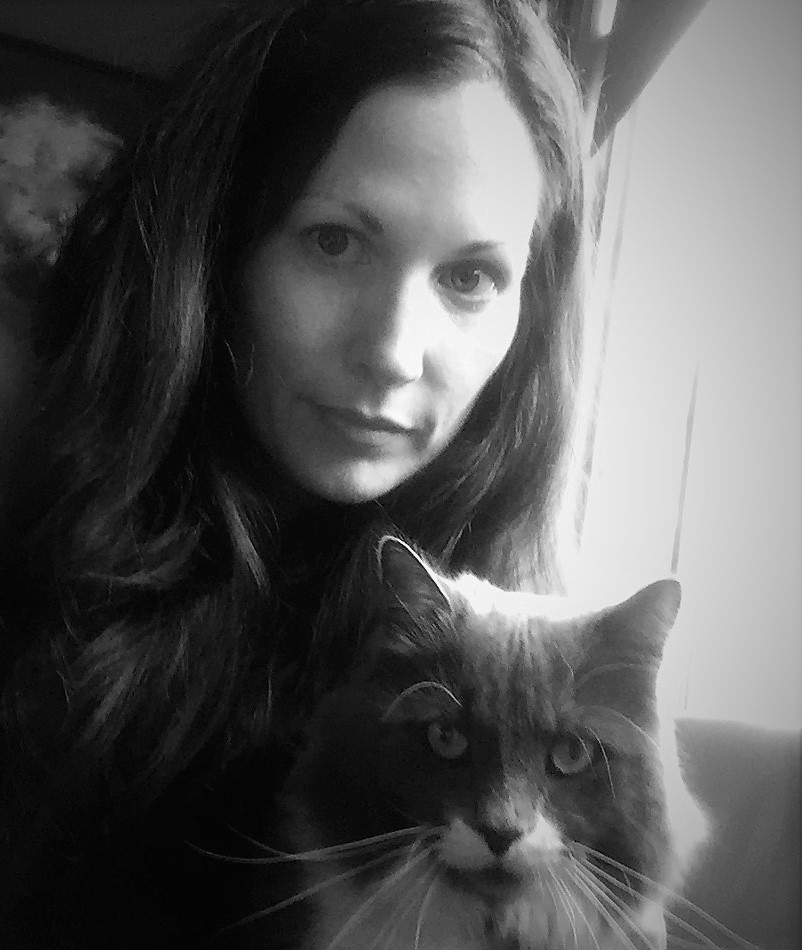|
How to be a single soul on a project team. For a cat, Kevin can be social. He doesn't need our human companionship, but he would get wet in the rain outside if he didn't have a house and he wouldn't have his food dish filled everyday. When he is warm and fed, is his behaviour being a loner or independent? Early humans needed to belong to the tribe so they wouldn't be outcast and eaten by the saber tooth. There was protection and food in being a part of the tribe. Fast forward a few hundred thousand years and we no longer need the tribe for protection and food. There are some individuals who do not want or need a tribe but have skills that can contribute to the greater good.
Our acceptance of individuals who do not require constant human contact has increased, however, there is still a social stigma for those who don't have coffee breaks with everyone else or do not attend office functions. It could mean that they have other things pressing in their schedule and have to use their time very wisely, not that they don't want to visit and chat with others (that is me), or it could mean that they really do not care for the companionship of others. Pushing an individual to always join can make them seem even more of an outcast. Accepting that they are individual and like their time alone can make them feel like they are understood. This doesn't mean leaving them off company emails or group invites; it means not singling them out for their lack of attendance at functions in front of others. If you are someone who doesn't require socializing, then you still need to at least say "hi" to your team everyday and on occasion ask how they are doing - if only to keep the project team happy for those who are social. Individuals who are typically team oriented and like to be social who become withdrawn and quiet require conversation with other team members. This could mean something is seriously wrong and intervention is needed. This is the same for someone who is typically independent and become the life of the party. There can be a personal issue causing the dramatic behavioural change. It should be natural for us to watch and note these changes in others, but I am writing about this as it is incredible how many managers do not observe any behavioural changes in team members. Individuals who are quiet are not necessarily unsocial. Many quiet folk are incredibly social. Another behaviour to be aware of - if someone is quiet, but attends team functions and builds relationships with team members, they are social. Individuals who are the life-of-the-office can be very insecure and lonely. This too is a behaviour to be accepted - within reason. Kevin becomes incredibly attentive when we return from a short weekend get-away. Then, he returns to his independent or loner behaviour. Does it work for our household? Yes, yes it does. Is he happy? Yes, yes he is. NOTE: The discussion between extrovert, introvert, ENTP, INFJ, etc.. character analysis was deliberately not a part of this blog. I will leave that to those the full-day workshops and HR teams - I am only giving the quick highlights of working with people for those who don't have time as they are busy socializing. ;)
0 Comments
Office contractions - decreasing team sizes and team members. Every spring Kevin sheds some fur to keep cool in the heat and give him the aerodynamics he needs when playing "chasing squirrels". However, shedding team members to decrease team sizes or losing team members from the company can be anything but a positive experience.
Almost all shedding is profit driven as business is profit driven. Without profit, there is no business or it is a business generated by existing monies. If there is no work, there is no profit. The complexity is introduced when those higher-ups begin the conversations about keeping good people to attract more work. In theory, this should work, but how long can a companies reserves afford to pay a good team member? How long can a company generate internal work without acquiring new contracts and new clients? This is not a personal slight against an individual who has been a model employee. It is economics. Profit also determines how many members are required on a team to complete a project. It would be wonderful if all projects had adequate team members and were able to produce excellent, quick, quality work. As I was told when I first started working, you can have 2 of the 3: fast, cheap, good - not all three. Technology has helped tremendously with innovation and productivity, however, as these elements increase, so does complexity. As projects become more complex, the work increases. Budgets do not often include the complexity factor. Some technology is changing so fast, that the complexity factor isn't even known yet and budgets do not align with additional costs of thinking and creating or using additional software, thus creating small stressed-out project teams. Losing team members to another project can be stressful not only as you pick-up a little bit extra work sometimes, but also the emotional element. If you have relied on the team member or have created a good friendship, management should be aware of this connection and allow you the time to adjust by either giving you a lighter workload for a day or so or even treating your old team to a mini farewell lunch. Proper introductions and endings can help teams feel ready-to-start or ready-to-move-on. Losing a team member from the firm can be very hard on the whole office, not just a team. There may be several reasons for a company to make the decision to let individuals move on. These reasons usually involve profit which create fear in the remaining workers that there isn't enough work and their exit will be next. This fear is real and can be extremely distracting for those trying to work toward deadlines. Again, something management should be sympathetic toward. As fall approaches, Kevin will grow new fur back to be ready for our cold winters. Like Kevin, we all must grow new skin to deal with new roles and adventures. Learning to be objective about our work performance. Kevin doesn't see that giving himself a bath in front of everyone in the house as disturbing or even offensive. To him, he needs to be clean, so he will clean. We can't explain to him that our non-cat friendly friends think it is weird or gross he does this cleaning openly in public. However, as the bipedal species, we can take the observational comments from our visitors, and take our own opinion of the situation and make a choice. To change or improve our behaviour or do nothing and possibly face criticism or isolation. This is why we can struggle on teams and with upper management. We can be subjective and truly feel that we are doing nothing wrong and can't figure-out why we are not promoted, congratulated, or rewarded for our performance.
There are leaders who are not good. There are many in almost every firm or company who do not deserve to have the role they do. However, there are some qualities that they have which allow them to lead others. Mostly, these qualities have more to do with the ability to profit and deliver than people or inter-personal skills. From a companies objective view, profit and delivery equals a happy client or a client that will return even if they don't like the people. This does not mean everyone on the team agrees that they are a good leader or good person. What management should try to achieve is both. Good profit, deliverables, AND happy teams. Modern leadership workshops and training are trying to do this, but it takes time. When you aren't moving in the direction that you feel you should with work, you need to take the time stand outside your self and really observe what is happening around you. Do you truly take initiative? Do you ask clear questions about what you want to be doing in your role? Do you ask, literally, to lead projects or meetings? Often, we think we are doing these things but we are not. What comments are you getting in your performance review? Can you put aside your own assumptions and hear what is being said without anger and frustration? It is very hard to look at yourself as an outsider, but it can be extremely beneficial for your self awareness and your career. Once you begin to look at your performance like the reviewer, the anger and frustration go away and you start to look at ways to improve and even surpass the person who gave you the review! These comments are not written from a place of being completely objective about myself. It is a constant struggle to be honest with yourself(myself) and not always pretty. Yet, it has brought me success and good fortune at times. As for Kevin, we just tell our non-cat friends that we are "currently working with his present issues". |
Author(s)Fiona Warren - 17 years experience with large high-profile projects and teams. Archives
April 2018
Categories |





 RSS Feed
RSS Feed